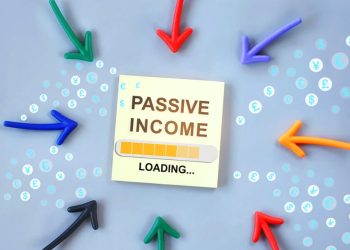Navigating the path to securing a mortgage can be challenging for anyone, but for those who are self-employed, the journey often requires extra diligence and preparation. Unlike salaried employees who have predictable income streams, self-employed individuals face unique hurdles when applying for a home loan. Understanding the essential steps can make the process smoother and increase the chances of approval. Here’s a comprehensive guide to help self-employed borrowers successfully secure a mortgage.
Understanding the Challenges for Self-Employed Home Loan Applicants
Lenders typically prefer stable, verifiable income when reviewing mortgage applications. For salaried workers, this information is straightforward: regular pay stubs and employer verification suffice. However, for self-employed applicants, income can fluctuate, and reliance on tax returns and business financials is necessary. This can make lenders more cautious, as they must ensure the borrower can reliably meet monthly mortgage payments.
Recognizing these challenges early on allows self-employed individuals to proactively prepare their documentation and present a strong application.
Essential Steps for Self-Employed Individuals to Secure a Mortgage
1. Organize Your Financial Documentation Thoroughly
One of the most critical steps in the mortgage process is compiling comprehensive financial records. Lenders want to see proof of stable income and the overall health of your business. Key documents you should prepare include:
– Personal and business tax returns for the past two years
– Profit and Loss (P&L) statements
– Balance sheets detailing assets and liabilities
– Bank statements showing consistent deposits
– A detailed explanation of any significant income fluctuations or gaps
Having these documents ready and organized will demonstrate your financial stability and make it easier for lenders to assess your loan application.
2. Maintain a Strong Credit Profile
Your credit score plays a vital role in lender decisions. Regardless of your employment status, a good credit score can significantly improve your mortgage approval chances and often lead to better interest rates. As a self-employed individual, it’s essential to:
– Regularly check your credit report for accuracy
– Pay bills and existing debts on time
– Keep credit card balances low
– Avoid taking on new, unnecessary debt prior to applying
Lenders view a solid credit profile as an indicator of responsible financial behavior.
3. Have a Healthy Debt-to-Income Ratio
The debt-to-income (DTI) ratio compares your monthly debt obligations to your gross monthly income. Lenders prefer lower ratios as they suggest you have enough income to afford new loan payments. For self-employed applicants, calculating DTI can be more complex but remains an imperative part of the application.
To manage this, try to minimize existing debts or increase income clarity through accurate documentation, thus improving your DTI ratio.
4. Build a Larger Down Payment
While not mandatory, a larger down payment can often tip the scales in your favor. It reduces the lender’s risk and may compensate for perceived income volatility. Many self-employed homebuyers aim to save at least 20% of the home’s price for the down payment, which can also help avoid private mortgage insurance (PMI).
5. Consider an Experienced Mortgage Broker
Navigating mortgage options can be overwhelming, especially for self-employed borrowers who might need customized loan products. A mortgage broker experienced in working with self-employed applicants can guide you toward lenders that specialize in these cases. They can also help package your income documentation to present your application in the best light.
6. Be Prepared for a Longer Approval Process
Due to the need for more verification, self-employed borrowers might experience longer processing times compared to conventional applicants. Patience and prompt communication with your lender will be beneficial. Respond quickly to any additional document requests and keep organized files ready.
Types of Mortgages Suited for Self-Employed Borrowers
Several loan options may fit self-employed individuals better than conventional loans:
– Bank Statement Loans: Instead of relying on traditional tax returns, lenders use bank statements to verify income, which can benefit those with dynamic or seasonal earnings.
– Stated Income Loans: These loans allow borrowers to “state” their income without extensive documentation, though they typically require stronger credit and higher down payments.
– FHA Loans: Backed by the Federal Housing Administration, these loans have more flexible requirements and can be accessible for self-employed buyers with decent credit scores and stable income verification.
Exploring these options with a knowledgeable mortgage professional can help determine which suits your financial situation best.
Final Thoughts: The Key to Success for Self-Employed Mortgage Applicants
Securing a home loan while self-employed necessitates preparation, organization, and patience. By compiling thorough financial documents, maintaining good credit, managing your debts, and possibly working with a seasoned mortgage broker, you can improve your likelihood of mortgage approval. Remember, transparency and demonstrating steady income over time are crucial to convincing lenders you are a reliable candidate.
With the right strategy and knowledge, self-employed individuals can achieve their dream of homeownership just as easily as anyone else.





































